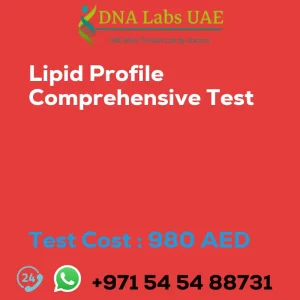PHOSPHATIDYLSERINE ANTIBODIES PANEL IgG and IgM Test
Test Name: PHOSPHATIDYLSERINE ANTIBODIES PANEL IgG and IgM Test
Components: IgG and IgM antibodies against phosphatidylserine
Price: 970.0 AED
Sample Condition: 2 mL (1 mL min.) serum from 1 SST. Ship refrigerated or frozen.
Report Delivery: Sample to be submitted by Tuesday 11 am; Report will be available on Friday
Method: Enzyme Immunoassay
Test Type: Thromboembolic disorders, Abortions
Doctor: Gynecologist, Physician
Test Department:
Pre Test Information: No special preparation required
Test Details:
The Phosphatidylserine Antibodies Panel IgG & IgM test is a blood test that measures the levels of IgG and IgM antibodies against phosphatidylserine in the body. Phosphatidylserine is a type of phospholipid that is normally found in cell membranes.
Elevated levels of phosphatidylserine antibodies, specifically IgG and IgM, may indicate an autoimmune disorder called antiphospholipid syndrome (APS). APS is characterized by the presence of abnormal blood clots in veins or arteries, recurrent miscarriages, and low platelet counts.
This test is often ordered for individuals who have a history of blood clots, recurrent miscarriages, or unexplained symptoms that may be associated with APS. It can help diagnose APS and monitor the effectiveness of treatment.
It is important to note that this test is not used for general screening purposes and is typically only ordered when there is a clinical suspicion of APS. The results of this test should be interpreted in conjunction with other clinical findings and tests to make an accurate diagnosis.
| Test Name | PHOSPHATIDYLSERINE ANTIBODIES PANEL IgG and IgM Test |
|---|---|
| Components | |
| Price | 970.0 AED |
| Sample Condition | 2 mL (1 mL min.) serum from 1 SST. Ship refrigerated or frozen. |
| Report Delivery | Sample Tue by 11 am; Report Fri |
| Method | Enzyme Immunoassay |
| Test type | Thromboembolic disorders, Abortions |
| Doctor | Gynecologist, Physician |
| Test Department: | |
| Pre Test Information | No special preparation required |
| Test Details |
The Phosphatidylserine Antibodies Panel IgG & IgM test is a blood test that measures the levels of IgG and IgM antibodies against phosphatidylserine in the body. Phosphatidylserine is a type of phospholipid that is normally found in cell membranes. Elevated levels of phosphatidylserine antibodies, specifically IgG and IgM, may indicate an autoimmune disorder called antiphospholipid syndrome (APS). APS is characterized by the presence of abnormal blood clots in veins or arteries, recurrent miscarriages, and low platelet counts. This test is often ordered for individuals who have a history of blood clots, recurrent miscarriages, or unexplained symptoms that may be associated with APS. It can help diagnose APS and monitor the effectiveness of treatment. It is important to note that this test is not used for general screening purposes and is typically only ordered when there is a clinical suspicion of APS. The results of this test should be interpreted in conjunction with other clinical findings and tests to make an accurate diagnosis. |







